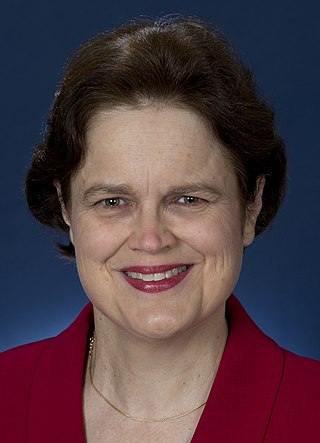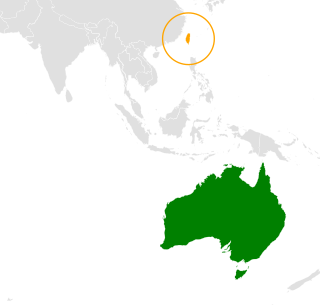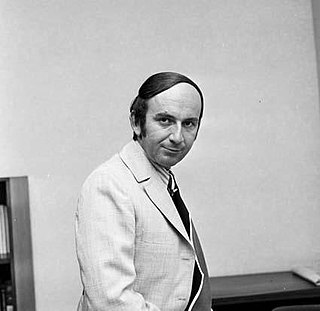Related Research Articles

The White Australia policy is a term encapsulating a set of racist historical policies that aimed to forbid people of non-European ethnic origin – especially Asians and Pacific Islanders – from immigrating to Australia, starting in 1901, in order to create an Anglo-Celtic ideal. The policy also affected immigrants from Germany, Italy, and other European countries, especially in wartime. Governments progressively dismantled such policies between 1949 and 1973.

Herbert Cole "Nugget" Coombs was an Australian economist and public servant. He is best known for having been the first Governor of the Reserve Bank of Australia, in which capacity he served from 1960 to 1968.
The diplomatic history of Australia refers to the historical events surrounding Australian foreign relations. Following the global change in the dynamics of international state of affairs in the 20th century, this saw a transition within Australia's diplomatic situation to broaden outside of exclusively commonwealth and western European nations. Its core relationship was with Great Britain until 1941, and with the United States and New Zealand since then as represented by ANZUS. In the 21st century trade has soared with China. However relations have cycled back and forth from friendly to strained. For recent relations see also Foreign relations of Australia.

Consular relations between China and Australia were first established in 1909, and diplomatic relations were established in 1941. Australia continued to recognise the Republic of China (ROC) government after it lost the Chinese Civil War and retreated to Taiwan in 1949, but switched recognition to the People's Republic of China (PRC) on 21 December 1972. The relationship between China and Australia has grown considerably over the years. Both countries are actively engaged economically, culturally and politically which spans numerous organisations such as APEC, East Asia Summit and the G20. China is Australia's largest trading partner, and has invested in Australian mining companies.

The Australian College of Educators (ACE) is an Australian national professional association for educators. Membership is open to all professional educators working in the early childhood, school, and tertiary education sectors, as well as to education researchers and managers. The College advocates for its members in seeking improvements in the status of the education profession.

Australia–North Korea relations refers to the existing bilateral relationship between Australia and North Korea. Relations were officially established on 31 July 1974 when Australia extended diplomatic recognition to North Korea under the Whitlam government. Overall, relations have been stressed and at times, tense, due to Australia's historical involvement in the Korean War and military alliance with the United States, and contemporary disputes such as North Korea's nuclear weapons program and accusations of human rights abuses by both sides.

Frances Jennifer Adamson, is an Australian public servant and diplomat who is the 36th Governor of South Australia, in office since 7 October 2021. She previously served as Australian Ambassador to China from 2011 to 2015 and as secretary of the Department of Foreign Affairs and Trade from 2016 to 2021.

Relations between the Commonwealth of Australia and the Republic of China, formerly the Qing dynasty, date back to 1909. Since 1972, the political status and legal status of Taiwan have been contentious issues. Australia and Taiwan share partnership in the inter-governmental Global Cooperation and Training Framework (GCTF) activities.

Peter Stephen Wilenski, was a senior Australian public servant and ambassador. He was a champion of women's rights and equal opportunity.
Vincent William John FitzGerald is a former senior Australian public servant, now a private consultant.
Graham Barton Feakes was an Australian public servant and diplomat. From 1984 to 1990, Feakes was Australian High Commissioner to India.
David Williamson McNicol was an Australian public servant and diplomat.

The Australian Office in Taipei represents Australian interests in Taiwan in the absence of formal diplomatic relations, functioning as a de facto embassy. The Office is headed by a Representative.
Dennis Walter Argall was an Australian diplomat and senior career officer with the Department of Foreign Affairs and Trade (DFAT). He was Australia’s Ambassador to China from 1984 until 1985. A tribute in John Menadue's, public commentator, and formerly a senior public servant and diplomat, journal of public policy, Pearls and Irritations described him as "curious, funny, fiercely intelligent, committed to social justice, and fairly often the world had to catch up with him. He didn’t laugh at sexist and racist jokes, he didn’t find them funny. He was a career diplomat, a former Ambassador to China, and he wrote the first speech in the Australian Parliament that talked about human rights."
The Buntine Oration is a biennial invited presentation and speech made at the conference of the Australian College of Educators (ACE). It was established in 1960 by the four children of Dr Walter Murray Buntine who survived him – Dr R. M. Buntine, Dr M. A. Buntine, Dr R. D. Buntine, and Mrs. D. M. G. Wilson – in his memory. The inaugural oration was given by Peter Karmel in 1962 at the third annual ACE conference and the most recent was in 2008.
References
- ↑ National Portrait Gallery, Professor Stephen FitzGerald AO b. 1938, Australian Government, retrieved 26 January 2016
- 1 2 Brady, James (15 October 2015). "FitzGerald honoured by Grammar award". The Examiner. Archived from the original on 19 October 2015.
- 1 2 Fitzgerald, Ross (5 September 2015). "Stephen FitzGerald, our first ambassador to China, blazed a trail". The Australian. News Corp.
- 1 2 3 4 5 "Conversations with Richard Fidler - Stephen FitzGerald: Australia's vital relationship with China". Australian Broadcasting Commission. 28 September 2015. Archived from the original on 26 January 2016.
- 1 2 3 4 Clark, Andrew (29 December 2015). "How a lone, young diplomat, Stephen FitzGerald, turned around policy on China". The Australian Financial Review. Fairfax Media.
- ↑ Broinowski, Richard (16 October 2015). "Comrade Ambassador - Whitlam's Beijing Envoy review: Capturing a seismic shift". The Sydney Morning Herald. Fairfax Media. Archived from the original on 26 January 2016.
- ↑ Jacobs, Michael (8 January 1973). "China accepts Ambassador". The Canberra Times. ACT. p. 3.
- ↑ 'The Coup That Laid the Fear of China' by Stephen FitzGerald, Western Sydney University, archived from the original on 30 September 2015
- ↑ FitzGerald, Stephen (5 October 2012). "Whitlam's China masterstroke". The Australian Financial Review. Fairfax Media. Retrieved 27 January 2016.(subscription required)
- ↑ "Dr Fitzgerald meets Chinese Minister". The Canberra Times. ACT. 24 April 1973. p. 7.
- ↑ "'Very broad' agreement with Chinese: Fraser". The Canberra Times. ACT. 25 June 1976. p. 6.
- ↑ Fitzgerald, John (2 August 2007), Australia–China relations 1976: looking forward, Department of Foreign Affairs and Trade, Canberra, ACT, retrieved 28 January 2016
{{citation}}: CS1 maint: location missing publisher (link) - ↑ "Credentials". The Canberra Times. ACT. 2 June 1975. p. 3.
- ↑ "New Ambassador to China announced". The Canberra Times. ACT. 23 October 1976. p. 1.
- ↑ "China-Japan rapport". The Canberra Times. ACT. 14 April 1977. p. 13.
- ↑ Stephen FitzGerald – Comrade Ambassador, Chinese Studies Association of Australia, 2015, archived from the original on 30 November 2015
- ↑ Stephen FitzGerald, China Matters, archived from the original on 26 January 2016
- ↑ Committee to Advise on Australia’s Immigration Policies (1988), Immigration: A Commitment to Australia (PDF), Canberra, ACT: Australian Government, archived from the original (PDF) on 17 March 2012
- ↑ "How to cut back on Asians: FitzGerald". The Canberra Times. ACT. 5 December 1988. p. 1.
- ↑ FitzGerald quoted in McDonald, Hamish (19 September 2015). "Q&A with Stephen FitzGerald, Australia's first China ambassador". The Saturday Paper.
- ↑ FitzGerald, Stephen (1988), "Chapter 1. National Educational Policy and Asian Studies" (PDF), in McKay, Elaine M. (ed.), Towards an Asia-Literate Society, Asian Studies Association of Australia, pp. 9–16, ISBN 0-908-055-07-2, archived from the original (PDF) on 26 January 2016
- ↑ "The Buntine Oration: A Short History". Australian College of Educators. 2004. Archived from the original on 18 January 2017. Retrieved 17 June 2016.
- ↑ Stephen FitzGerald, Comrade Ambassador, Australian National University, 2015, archived from the original on 26 January 2016
- ↑ Griffiths, Billy (November 2015), "From Gough to thought bubbles", Australian Book Review , 376 (19)
- ↑ "Who We Are". China Matters. Retrieved 9 April 2020.
- ↑ "Whitlam Institute". Archived from the original on 8 September 2018. Retrieved 4 May 2017.
- ↑ "Search Australian Honours: FITZGERALD, Stephen Arthur, Officer of the Order of Australia", itsanhonour.gov.au, Australian Government, archived from the original on 26 January 2016
- ↑ "2016 - National Biography Award". State Library of New South Wales. Retrieved 16 August 2017.
- ↑ Rappolt, Patricia (31 December 1977). "A book for China watchers". The Canberra Times. ACT. p. 9.